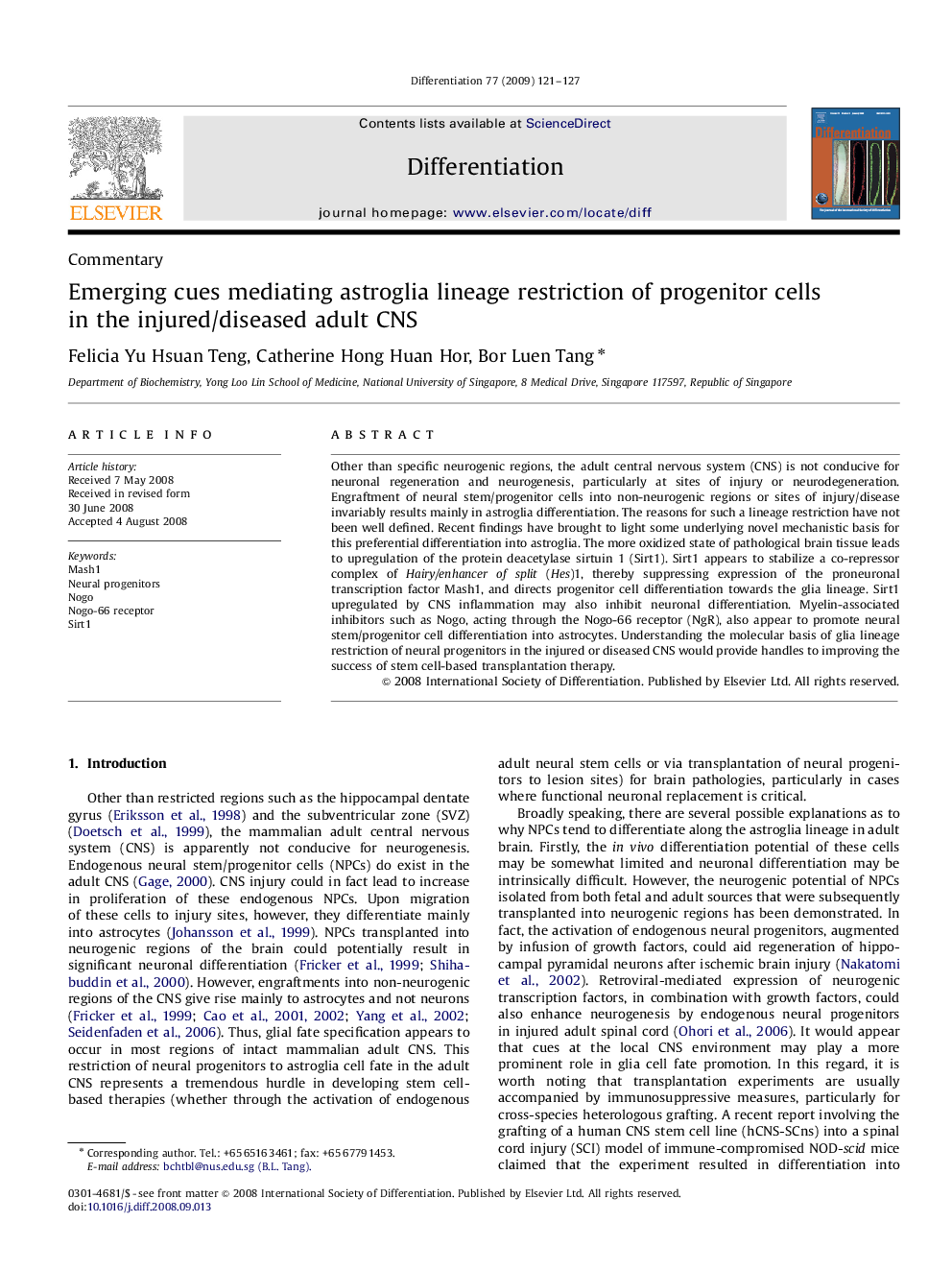| Article ID | Journal | Published Year | Pages | File Type |
|---|---|---|---|---|
| 2119809 | Differentiation | 2009 | 7 Pages |
Other than specific neurogenic regions, the adult central nervous system (CNS) is not conducive for neuronal regeneration and neurogenesis, particularly at sites of injury or neurodegeneration. Engraftment of neural stem/progenitor cells into non-neurogenic regions or sites of injury/disease invariably results mainly in astroglia differentiation. The reasons for such a lineage restriction have not been well defined. Recent findings have brought to light some underlying novel mechanistic basis for this preferential differentiation into astroglia. The more oxidized state of pathological brain tissue leads to upregulation of the protein deacetylase sirtuin 1 (Sirt1). Sirt1 appears to stabilize a co-repressor complex of Hairy/enhancer of split (Hes)1, thereby suppressing expression of the proneuronal transcription factor Mash1, and directs progenitor cell differentiation towards the glia lineage. Sirt1 upregulated by CNS inflammation may also inhibit neuronal differentiation. Myelin-associated inhibitors such as Nogo, acting through the Nogo-66 receptor (NgR), also appear to promote neural stem/progenitor cell differentiation into astrocytes. Understanding the molecular basis of glia lineage restriction of neural progenitors in the injured or diseased CNS would provide handles to improving the success of stem cell-based transplantation therapy.
